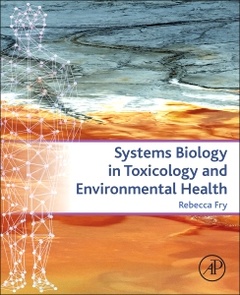Description
Systems Biology in Toxicology and Environmental Health
Coordinator: Fry Rebecca
Language: English
Subjects for Systems Biology in Toxicology and Environmental Health:
Keywords
1, 3-Butadiene, Adaptive immunity, Air pollution, Apoptosis, Arsenic, Autoimmune, Benzene, Bioinformatics, Biology, Bisphenol A, Bisphenol A (BPA), Brominated flame retardants, c-Jun N-terminal kinase (JNK), Cadmium, Cell, Checkpoints, Chemokines, Chloroform, Chromatin, Cigarette smoke (CS), Computational toxicology, Cytokines, Damage, Deoxyribonucleic acid (DNA), Developmental origins of health and disease (DOHaD), Diethylstilbestrol (DES), Dioxin(s), Dioxins, Disease, DNA, DNA methylation, Endocrine disruptor, Endocrine system, Environmental exposure, Environmental health, Epigenetic, Epigenetics, Epigenome, Epigenomic, Epigenomics, Estrogen(s), Flame retardants, Formaldehyde, Gene, Genome-Wide Association Studies (GWAS), Genomics, Histone modification, Hormones, IFN-γ, Immune system, Innate immunity, Interleukin, JNK MAPK, Lead, Leukocytes, Mercury, Metabolomics, NFκB, Nuclear factor kappa B (NFκB), Nutrition, p38 MAPK, p53, Pathways, Perfluorinated chemicals, Polychlorinated biphenyls, Polycyclic aromatic hydrocarbons, Prenatal exposure, Protein, Proteome, Proteomics, Repair, Response, RNA, Sequencing, Siloxanes, Systems, Systems biology, Systems toxicology, TGFβ, Thyroid, TNFα, Toxicology, Transcriptome, Transcriptomics, Tumor necrosis factor (TNF), Vinyl chloride
Support: Print on demand
Description
/li>Contents
/li>Readership
/li>Biography
/li>Comment
/li>
Systems Biology in Toxicology and Environmental Health uses a systems biological perspective to detail the most recent findings that link environmental exposures to human disease, providing an overview of molecular pathways that are essential for cellular survival after exposure to environmental toxicants, recent findings on gene-environment interactions influencing environmental agent-induced diseases, and the development of computational methods to predict susceptibility to environmental agents. Introductory chapters on molecular and cellular biology, toxicology and computational biology are included as well as an assessment of systems-based tools used to evaluate environmental health risks. Further topics include research on environmental toxicants relevant to human health and disease, various high-throughput technologies and computational methods, along with descriptions of the biological pathways associated with disease and the developmental origins of disease as they relate to environmental contaminants.
Systems Biology in Toxicology and Environmental Health is an essential reference for undergraduate students, graduate students, and researchers looking for an introduction in the use of systems biology approaches to assess environmental exposures and their impacts on human health.
Chapter 2: Biology basics
Chapter 3: From the genome to epigenome: fundamental concepts
Chapter 4: Tools and technologies used in systems biology
Chapter 5: Environmental contaminants
Chapter 7: Environmental contaminants, inflammation-associated pathways and disease
Chapter 8: Environmental contaminants, apoptosis-associated pathways and disease
Chapter 9: Environmental contaminants, DNA damage and repair pathways and disease
Chapter 10: Environmental contaminants and hormone response and disease
Chapter 11: The systems perspective
- Provides the first reference of its kind, demonstrating the application of systems biology in environmental health and toxicology
- Includes introductions to the diverse fields of molecular and cellular biology, toxicology, and computational biology
- Presents a foundation that helps users understand the connections between the environment and health effects, and the biological mechanisms that link them




